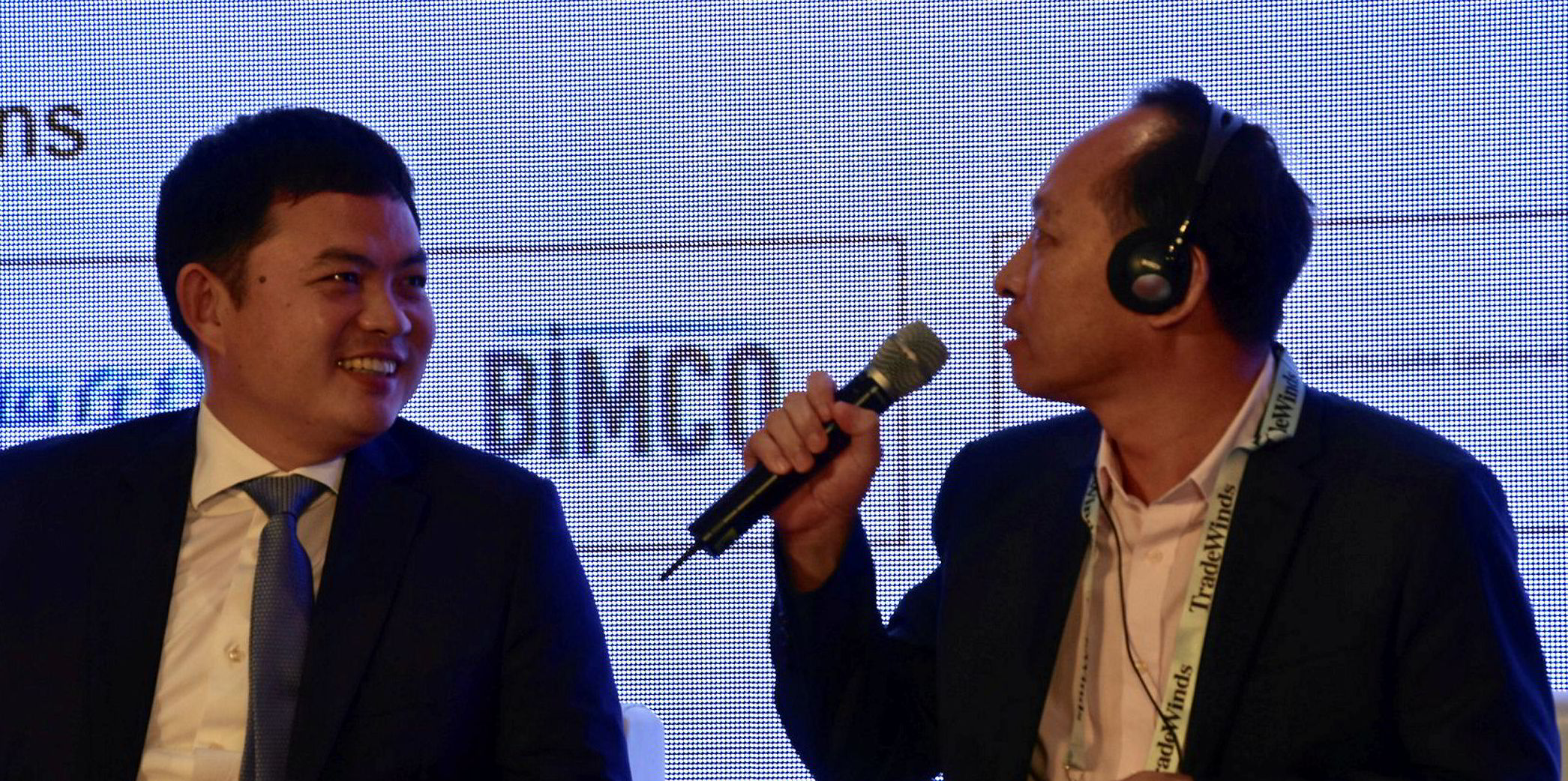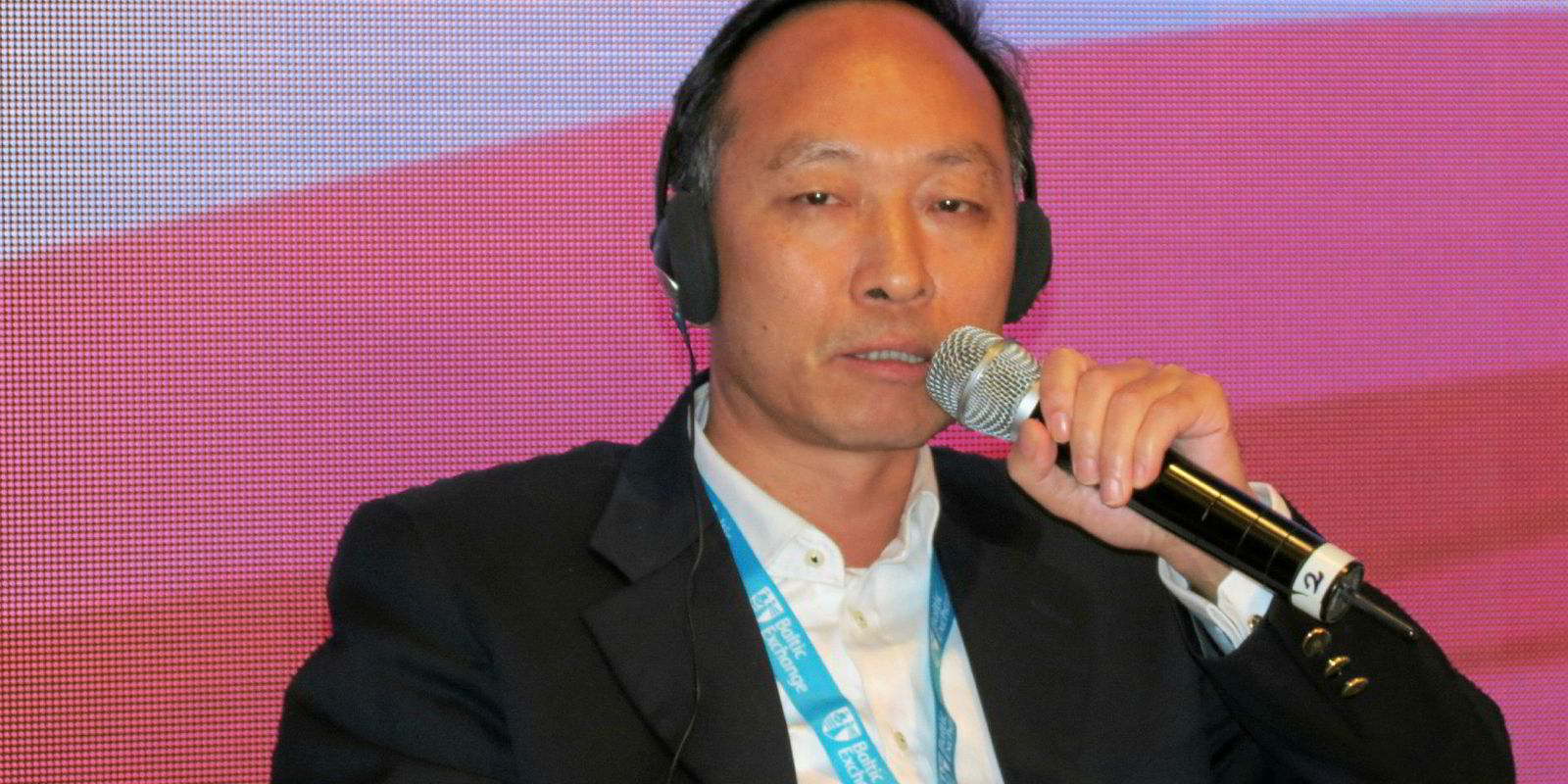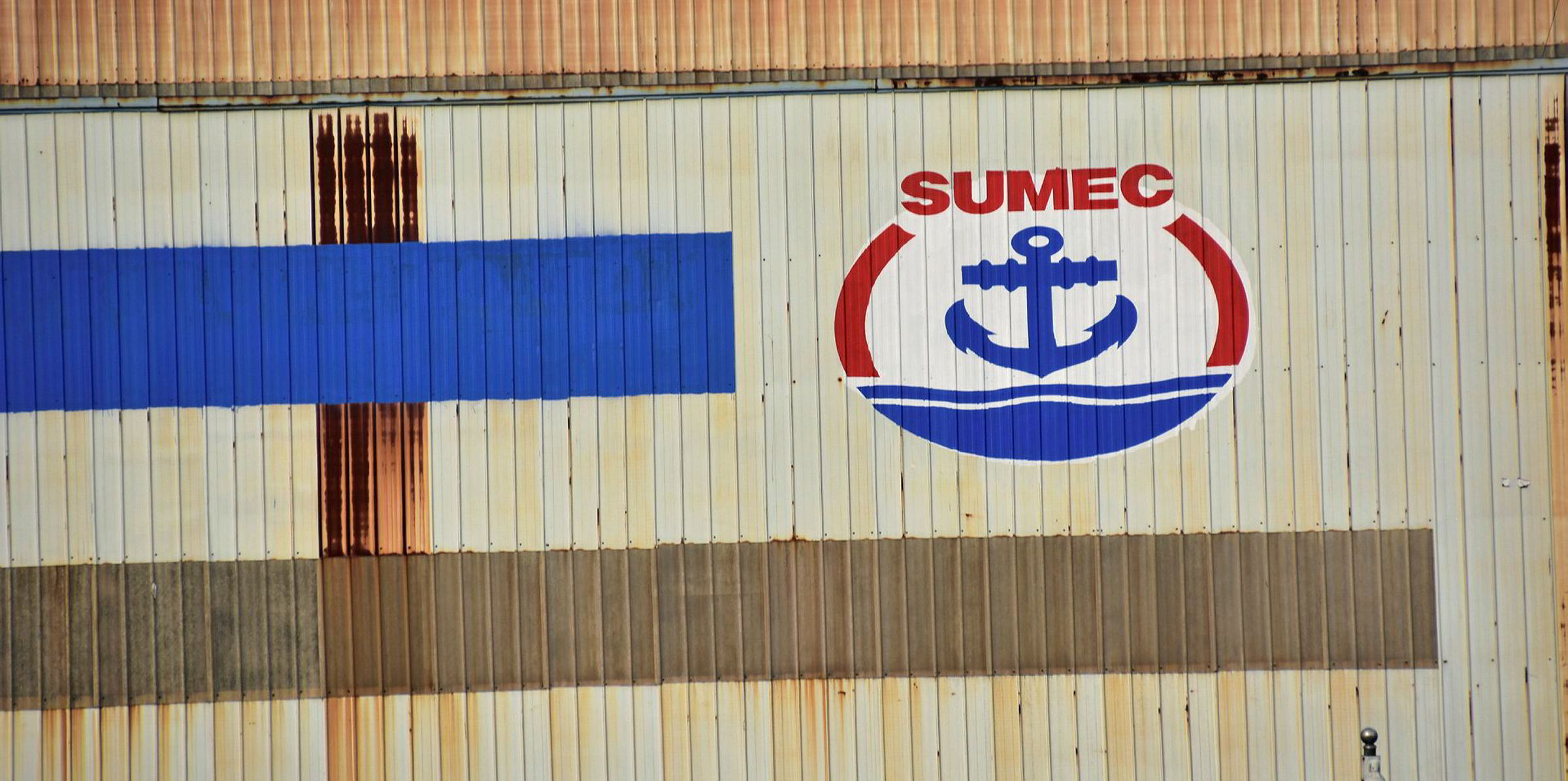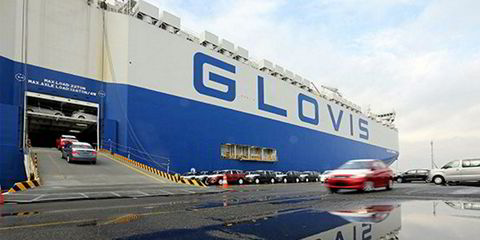Either digitalisation and unmanned ships are 'hype', or they will dramatically slash the ranks of shipowners within a decade.
China's shipowners expressed strong and divergent points of view on the effect of technology at today's TradeWinds Shipowner Forum for Greater China.
Some of the prospects being bruited about are exaggerated, suggested managing director Yang Lei of Sumec Ocean Transportation, the rapidly growing sister company of New Dayang Shipbuilding in the Sumec trading and manufacturing group.
In common with several fellow panellists at the forum, Yang regards artificial intelligence (AI) initiatives at the commercial level as most directly applicable to containerised liner shipping, not dry bulk.
But chemical carrier owner Li Duozhu of Dingheng Shipping made an exuberant case for radical disruption at financial, commercial, and operational levels, saying that he expects to see crewless chemical tankers within a decade, and the number of shipowners in the world reduced to just 10.
"As a shipowner today our only goal is to survive," said Li.
Li also doubled down on a disruptive initiative of his own, an ongoing project to build 100 chemical carriers through collaborative equity investments with equipment manufacturers and shipbuilders, which he announced in 2017.
"Everybody is asking me the same question about this project. Everybody is challenging me. How will I get financing? But I don't need financing. I don't need loans from a bank," Li told the TradeWinds forum, to the visible delight of fellow panellists.
Li told delegates to the event that cost-saving technological innovations at both the ship design and operating levels will enable him to guarantee Dingheng's partner investors a 15% return on their investment.
Dingheng's research, in collaboration with the Wuhan University of Science and Technology, could reduce his present crews of 15 per ship to six, and eventually to zero, Li said. And unmanned shipping will bring with it a different set of structural standards for ship construction, which will allow construction with lighter materials, and even 3D printing of vessels.
Sumec's Yang, who participated in the panel n English, shifted to Chinese to express reservations about some other panellists' optimism on the digital front.
"AI depends on big data, and in today's situation it is not applicable to a trader of a capesize vessel, for example," said Yang. "Sometimes people talk about AI as a way to get investment."
Yang is also sceptical about whether digitalisation will lead to unmanned ships — not because of any technical reasons but for reasons of safety in ship operations and legal liability.
"In 20 years we will not have unmanned vessels," Yang said. "The cost of a crew is nothing compared to the cost of a ship sinking."
Yang's company operates some 42 ships including owned vessels from sister yard Dayang and bareboat chartered vessels from Chinese financial leasing companies.






